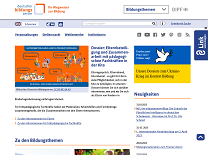inclusive teaching material (itm) – english information https://www.bildungsserver.de/bisy.html?a=9058&spr=1
The project „itm“ aimed at analysing teaching material from Sweden, Italy, Germany and Luxembourg with regard to their inclusion-sensitivity. Based on this analysis, the project partners went on to compile evaluation criteria and develop inclusive teaching materials themselves. Under „project goals“ you can find a criteria catalogue, a process model, publications, a concept for teacher training, and an accompanying study for quality assurance. The project ran from September 2018 till December 2021. [Abstract: Editors of Education Worldwide]

